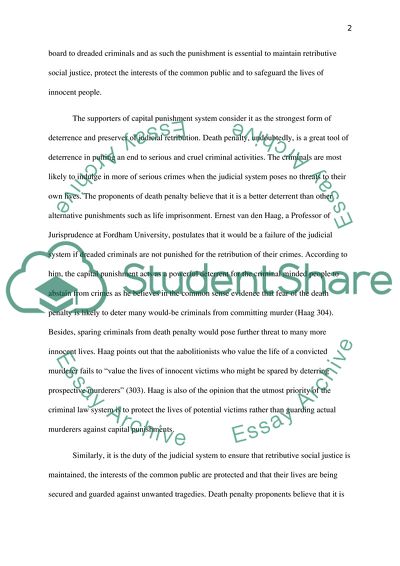Cite this document
(Pro Capitol Punishment Essay Example | Topics and Well Written Essays - 1500 words, n.d.)
Pro Capitol Punishment Essay Example | Topics and Well Written Essays - 1500 words. https://studentshare.org/sociology/1815712-pro-capitol-punishment
Pro Capitol Punishment Essay Example | Topics and Well Written Essays - 1500 words. https://studentshare.org/sociology/1815712-pro-capitol-punishment
(Pro Capitol Punishment Essay Example | Topics and Well Written Essays - 1500 Words)
Pro Capitol Punishment Essay Example | Topics and Well Written Essays - 1500 Words. https://studentshare.org/sociology/1815712-pro-capitol-punishment.
Pro Capitol Punishment Essay Example | Topics and Well Written Essays - 1500 Words. https://studentshare.org/sociology/1815712-pro-capitol-punishment.
“Pro Capitol Punishment Essay Example | Topics and Well Written Essays - 1500 Words”. https://studentshare.org/sociology/1815712-pro-capitol-punishment.


